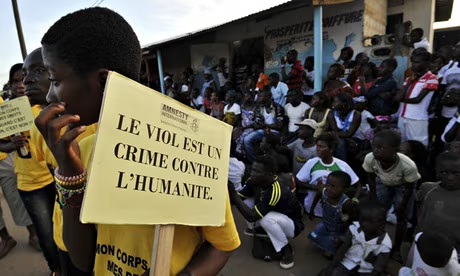Banjul, 7 September 2018: The African Committee of Experts on the Rights and Welfare of the Child (ACERWC) has issued a ground-breaking decision in favour of the plaintiffs in “Communication 006/Com/002/2015: Institute for Human Rights and Development in Africa and Finders’ Group Initiative (on behalf of TFA, minor) v. Republic of Cameroon”.
In the decision communicated to the plaintiffs on 4 September 2018, the ACERWC urged Cameroon to pay TFA, a victim of rape, compensation for damages worth 50 million CFA (approximately USD 90,000 – Ninety Thousand USD), in addition to other structural remedies recommended. This is the first case of sexual violence on a minor decided at the regional level.
By the facts of the case, TFA was raped by a wealthy and prominent man in Bamenda in the North West Region of Cameroon in 2012, when she was 10 years old. Despite compelling medical evidence that the girl had been raped, Cameroon authorities failed to carry out an effective investigation into the incident or prosecute the perpetrator. Rather, TFA’s Counsel and her aunt were eventually sued for defamation against the Examining Magistrate for the case, which had remained pending before the Court in Bamenda, subject to repeated adjournments.
IHRDA and Finders’ Group Initiative (FGI) seized the ACERWC in November 2015, alleging several violations of rights protected especially under the African Charter on the Rights and Welfare of the Child and other international legal instruments. The plaintiffs appeared before the ACERWC’s 30th Ordinary Session in Khartoum, Sudan, in December 2017, to argue the case.
In the decision taken at the 31st Ordinary Session held from 24 April to 6 May 2018 in Bamako, Mali, the ACERWC found Cameroon in violation of several obligations, notably protection against child abuse and torture, and against non-discrimination. Besides the financial compensation to TFA, the ACERWC has called on Cameroon to immediately ensure that the perpetrator is prosecuted and punished, and to put in place a series of structural measures for the elimination of all forms of violence against children, including enactment and implementation of relevant legislation, training of competent officers/authorities, creation of specialized mechanisms, as well as sensitization and education of the public.
The plaintiffs have praised the decision, which they describe as a major plus to child rights jurisprudence in Africa.
Cameroon is expected to report to the ACERWC on steps taken to implement this decision within 180 days of notification.




